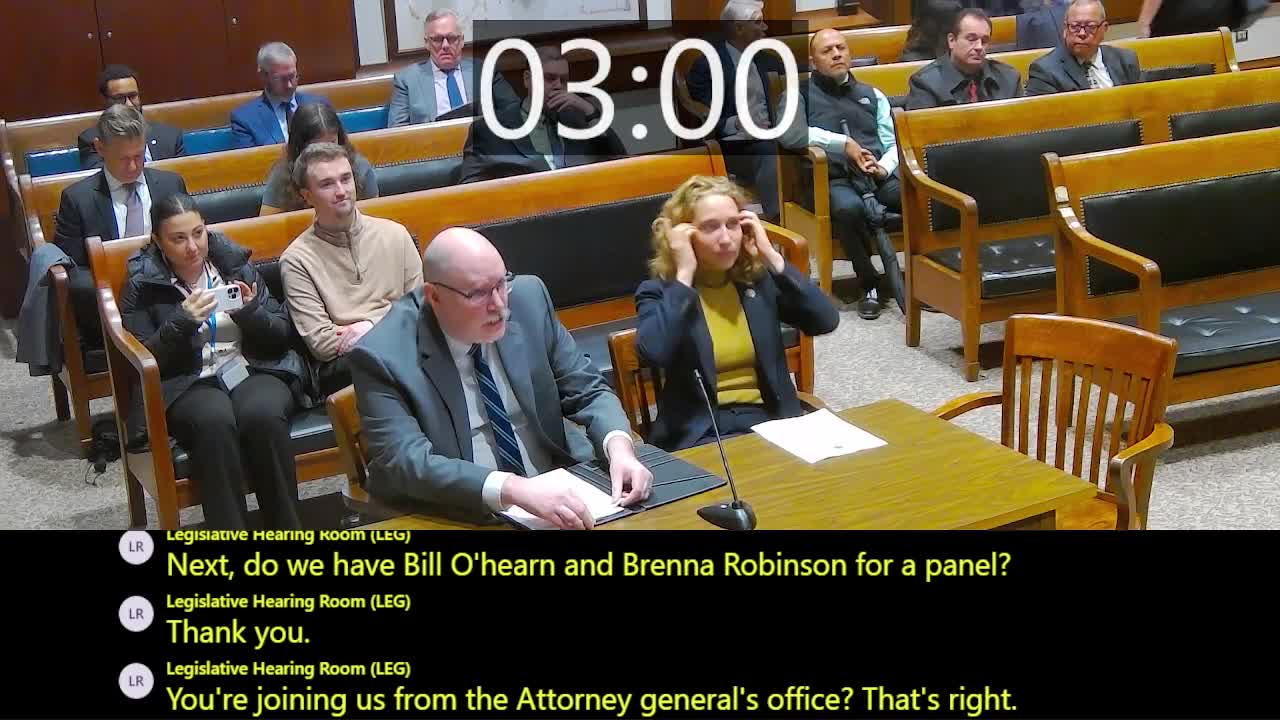Attorney General’s office backs updates to Massachusetts used-car protections; dealers raise affordability concerns
Get AI-powered insights, summaries, and transcripts
Subscribe
Summary
The Attorney General’s office urged the Joint Committee to modernize Massachusetts consumer protections for automobile sales, including changes to the lemon law, warranty mileage cap and dealer surety bonds; independent dealers warned the changes could drive small sellers out of business.
Bill O’Hearn and Brenna Robison of the Massachusetts Attorney General’s Consumer Advocacy and Response Division told the Joint Committee on Consumer Protection and Professional Licensure that Senate Bill 228 and House Bill 379 would modernize protections for buyers of used cars.
O’Hearn said the bills would clarify the lemon-law timing, allowing returns for cars that fail inspection within seven days of delivery rather than seven days of purchase; increase the statutory warranty mileage cap from 125,000 miles to 200,000 miles; and raise the surety-bond requirement for dealers from $25,000 to $50,000 to help consumers recover losses when a dealership fails. “Consumers expect and deserve a car that works when they drive off the auto dealership lot,” O’Hearn said, noting that his office received “over 900” consumer complaints about defective used cars in 2024.
Robison, who supervises the AG’s auto team, cited cases in which low-income buyers purchased higher-mileage vehicles and later faced large repair bills that effectively equaled the vehicle’s purchase price. She described three examples: a Marstons Mills consumer who purchased a 2008 Hyundai Tucson with about 140,000 miles for $5,000 and then faced about $4,200 in repairs, and a Somerset consumer who bought a 2012 GMC Acadia with 127,000 miles and soon required more than $5,000 in repairs. Raising the mileage cap, the AG’s office said, would make statutory warranties available to more buyers.
Independent dealers testified in opposition. Luke Tedeschi, executive director of the Mass Independent Auto Dealers Association, and board chairman Juan Mendez said many smaller “mom-and-pop” dealers operate on thin margins, often with 15 vehicles or fewer, and that higher bond requirements and expanded mileage protections would raise operating costs and could force some dealers from the market. Tedeschi urged legislators to consider alternatives such as a dealer-education bill (House Bill 3641) that would require training before licensing.
Manufacturers and dealer associations separately addressed related bills affecting franchise relationships and warranty reimbursement standards later in the hearing; those stakeholders warned that a statutory change to labor-time reimbursement could substantially raise costs for manufacturers and consumers (see related coverage). The committee received testimony but took no roll-call votes on SB 228 or HB 379 during the hearing.
